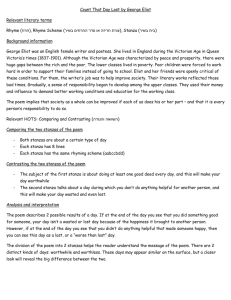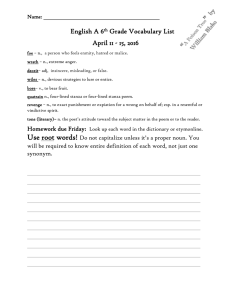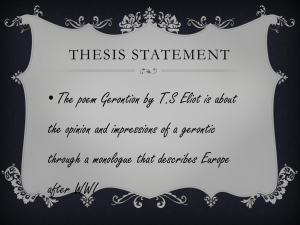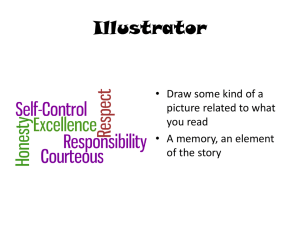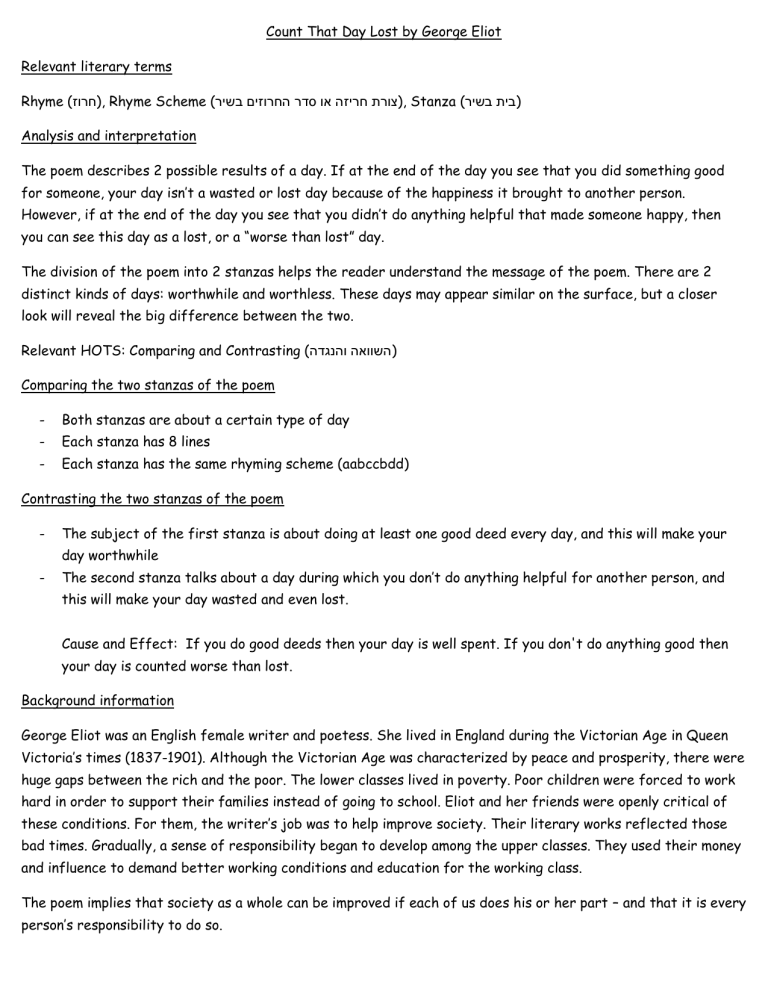
Count That Day Lost by George Eliot Relevant literary terms Rhyme ()חרוז, Rhyme Scheme ()צורת חריזה או סדר החרוזים בשיר, Stanza ()בית בשיר Analysis and interpretation The poem describes 2 possible results of a day. If at the end of the day you see that you did something good for someone, your day isn’t a wasted or lost day because of the happiness it brought to another person. However, if at the end of the day you see that you didn’t do anything helpful that made someone happy, then you can see this day as a lost, or a “worse than lost” day. The division of the poem into 2 stanzas helps the reader understand the message of the poem. There are 2 distinct kinds of days: worthwhile and worthless. These days may appear similar on the surface, but a closer look will reveal the big difference between the two. Relevant HOTS: Comparing and Contrasting ()השוואה והנגדה Comparing the two stanzas of the poem - Both stanzas are about a certain type of day - Each stanza has 8 lines - Each stanza has the same rhyming scheme (aabccbdd) Contrasting the two stanzas of the poem - The subject of the first stanza is about doing at least one good deed every day, and this will make your day worthwhile - The second stanza talks about a day during which you don’t do anything helpful for another person, and this will make your day wasted and even lost. Cause and Effect: If you do good deeds then your day is well spent. If you don't do anything good then your day is counted worse than lost. Background information George Eliot was an English female writer and poetess. She lived in England during the Victorian Age in Queen Victoria’s times (1837-1901). Although the Victorian Age was characterized by peace and prosperity, there were huge gaps between the rich and the poor. The lower classes lived in poverty. Poor children were forced to work hard in order to support their families instead of going to school. Eliot and her friends were openly critical of these conditions. For them, the writer’s job was to help improve society. Their literary works reflected those bad times. Gradually, a sense of responsibility began to develop among the upper classes. They used their money and influence to demand better working conditions and education for the working class. The poem implies that society as a whole can be improved if each of us does his or her part – and that it is every person’s responsibility to do so.
